
New Builds
New builds - The ultimate guide for every property investor
Explore the essentials of investing in new builds. Our guide covers key strategies, benefits, and tips to navigate the market and maximise your investment.
New Builds
9 min read
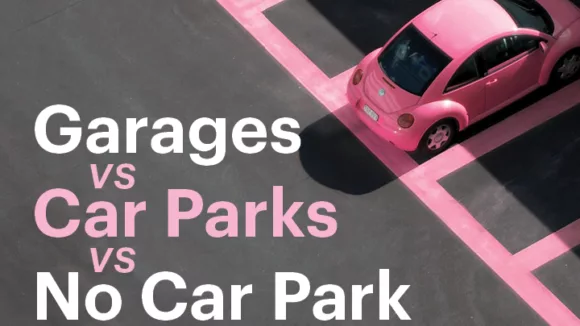
Author: Laine Moger
Journalist and Property Educator, holds a Bachelor of Communication (Honours) from Massey University.
Reviewed by: Ed McKnight
Resident Economist, with a GradDipEcon and over five years at Opes Partners, is a trusted contributor to NZ Property Investor, Informed Investor, Stuff, Business Desk, and OneRoof.
When buying a property, many investors ask “Should I buy a property without a car park … or would one with a garage be better?”
This is a really important question, because if you are out shopping for townhouses and New Builds – the car parking situation is often different.
Some townhouses will have a garage, others will have a separate car park, and some will have no car park at all.
In this article, you’ll learn the difference in price and rent between all 3 options. This will allow you to answer for yourself “Which is better for investment? Garage, car park, or no car park?”
If you have any questions or thoughts, please leave them in the comments section below.
The going rate for a car park depends on the city you invest in.
For instance, the range is often $25k-$40k extra compared to buying a property without car parking. The additional cost of a car park is higher in a more expensive city, and lower in a cheaper one.
For example, if you are eyeing up an Auckland 2-bed townhouse with a car park you are likely to pay around $749k-$799k.
However, if you bought a property without a car park this would likely be about $699k-$739k.
Whereas a 2-bed townhouse in Christchurch would likely cost $559k-$599k for a property with a car park and around $499k-$549k without.
The price jump to go from a townhouse with a car park to one with an inbuilt garage is wider.
For instance, while some properties with a garage typically cost an extra $40k-$50k, some properties with a garage are an additional $260k to $320k more.
This may seem like a huge expense for “just a garage”. However, often a developer will up-spec other aspects of the property if a garage is included. So it’s not just the garage that has been changed, other parts of the property have also been improved.
Let’s go through an example.
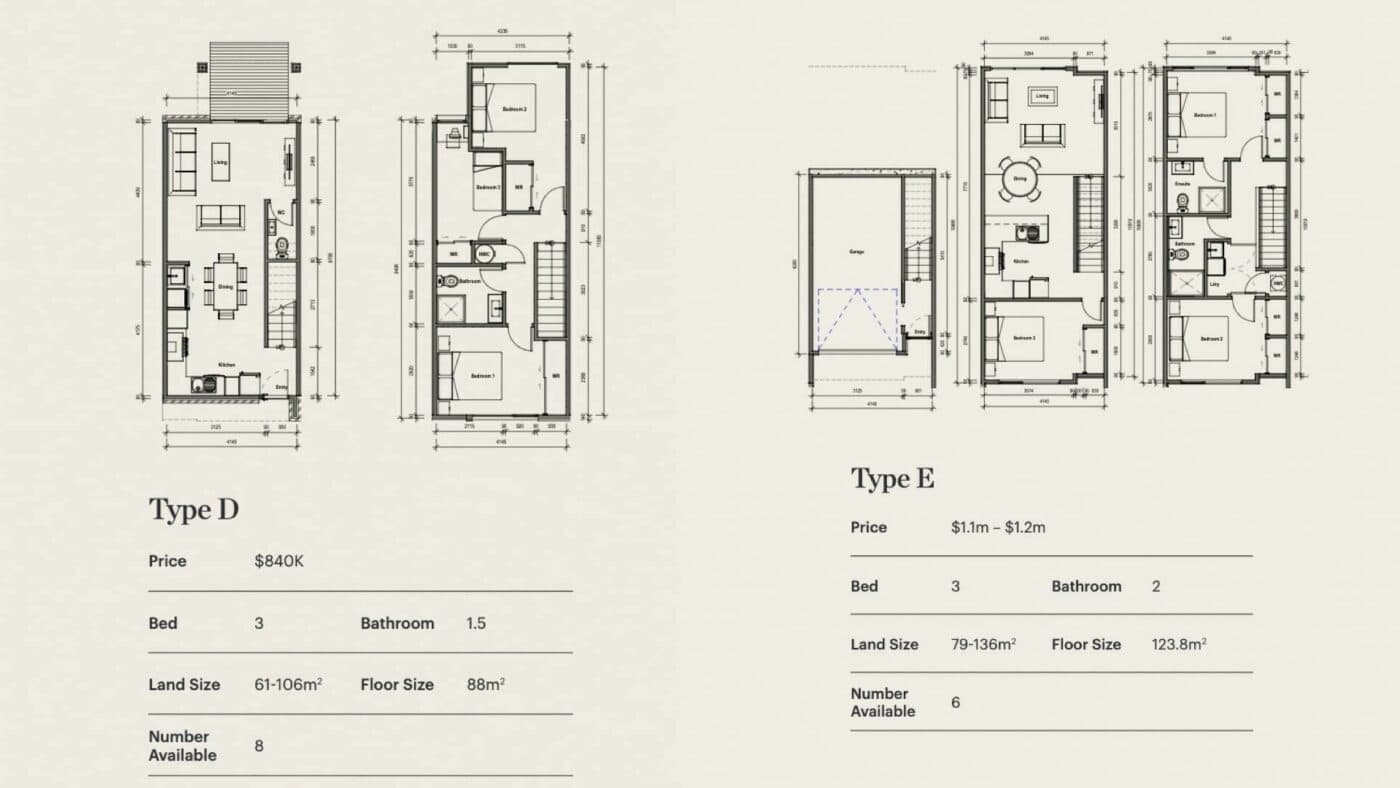
Coronation Road is a development we recently recommended to investors in Mangere Bridge, Auckland.
There is a $260,000 price difference between a 3-bedroom townhouse with a car park (shown in the above floor plans on the left) and a 3-bedroom with a garage (shown on the right).
At first glance you may think: “Holy heck, is that really the price of a garage.”
But, if you look at the specs you can see there are other differences too.
For example, in the $840k property (car park only) one of the three bedrooms was a single room.
But in the property with the garage, all of the 3 bedrooms are doubles.
The more affordable property also has 1.5 bathrooms, while the property with the garage has two full bathrooms.
This example shows that the price increase is not solely attributable to the garage.
Now, of course, garages do add cost to the build, so that’s usually why the developer chooses to up-spec those properties to get a more premium price.
This is why it’s a good idea to check out the floor plans before writing off your idea to purchase a property with a garage.
You’ve got to do a little bit more digging to see the full difference.
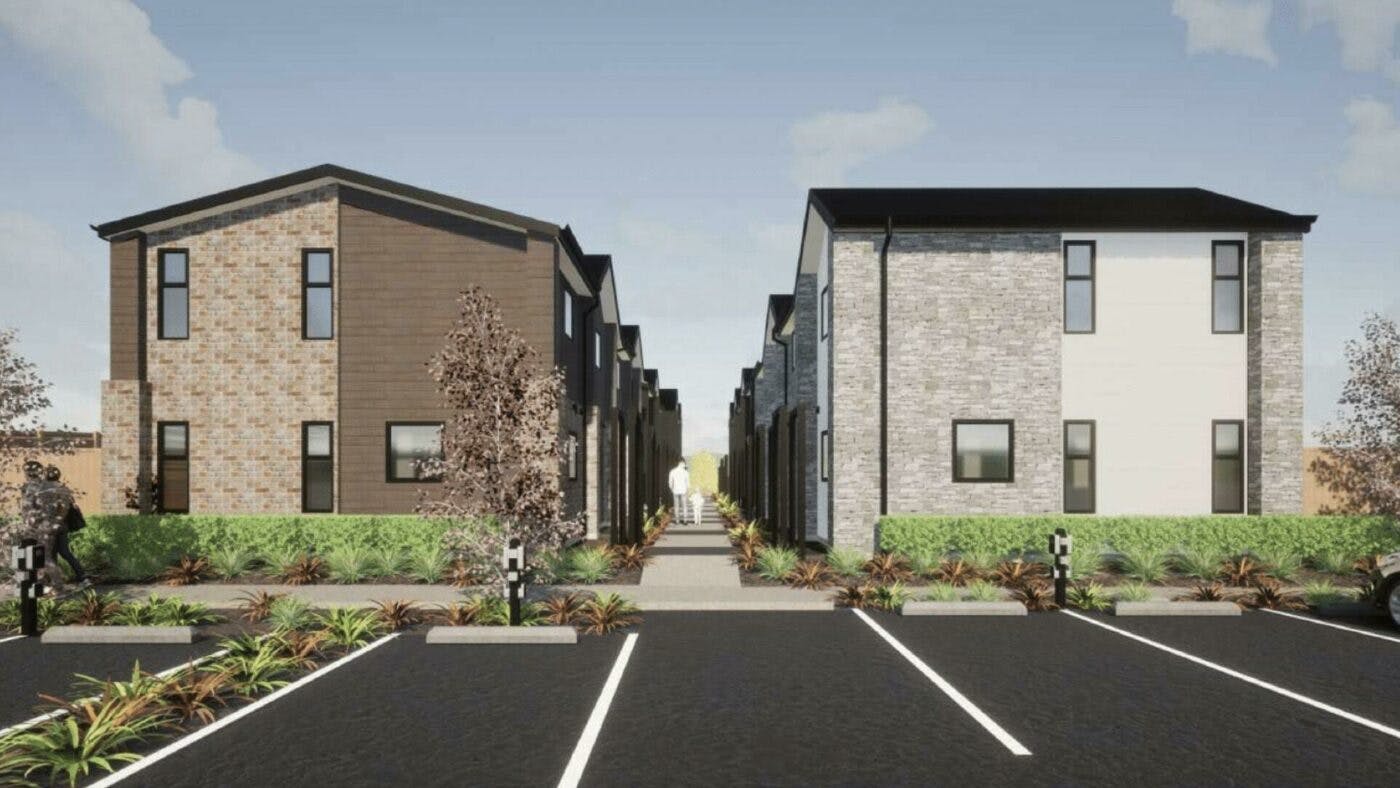
Townhouses with a car park should have at least a 4% gross yield. This is the minimum we’d expect when recommending a townhouse to an investor.
However, an acceptable yield will go up or down depending on whether there is no car park or if the property has a garage.
A townhouse without a car park should fetch a gross yield of 4.5%.
This is slightly higher than the standard 4% baseline for our investors here at Opes Partners.
Why? Because a townhouse without a car park might attract a more limited market. There aren’t going to be as many people wanting to rent it. Therefore, an investor might want a bit more fat in there for longer vacancies.
Generally speaking, the gross yield for a garage is lower. So, as a rule, we’d say take no less than a 3.75% gross yield.
But you’d always want to be fighting for 4% – if at all possible.
Secure a comfortable retirement with 3 easy steps
Book your free sessionWhen looking at capital growth you need to consider how quickly a property will double in value (i.e. percentage growth).
And the question you need to ask yourself is: “Will a car park or garage help my property double in value more quickly?”
In other words will a car park or garage disproportionately help my property increase in value?
Unfortunately, there is no data to suggest that a property with or without a garage/car park will increase in value more quickly or slowly. The data doesn’t exist.
However, there could be an argument made that a property without a car park won’t grow in value as quickly in the future.
Why is that?
If you buy an investment property without a car park – today – your tenants park on the street.
At the moment that on-street parking may be plentiful. However, over time as cities intensify, competition for those on-street car parks will increase.
This will make a property with an allocated car park relatively more valuable in time, as finding a car park on the street takes more time (or if your tenants need to park further away from their property).
This could then impact buyer behaviour and mean they are willing to pay more for a property with an allocated parking spot.
However, this same effect wouldn’t happen between properties with garages and allocated car parks. Sure, properties with garages are more expensive, but moving towards having a garage won’t necessarily help your property double in value more quickly.
Why? Because the relative value of having (or not having) a garage won’t change over time. You don’t have the same issue of increasing competition for car parking, like you do for properties without an an allocated parking spot.
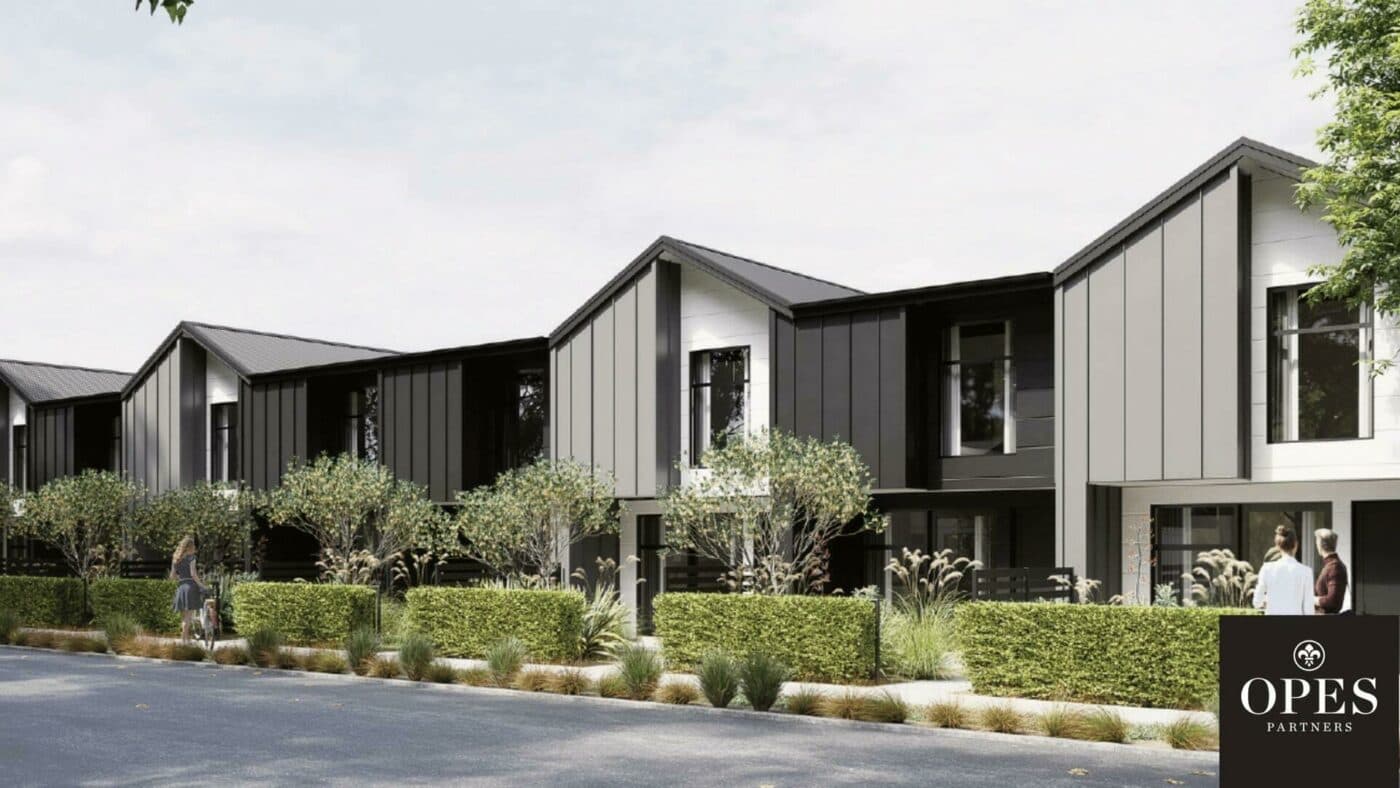
Well, not necessarily. It depends on the deal in front of you.
If you find a property without a car park that is exceptionally well priced, it could be a goer.
Similarly, some properties don’t need car parks to be attractive, because tenants don’t expect them. For instance, not having a car park for an apartment or townhouse in the middle of the CBD may not be much of an issue, if that’s not what your target tenant expects.
Because we work with over 1,000 investors a year here at Opes Partners we get to hear the questions going through many Kiwi investors’ minds.
One that often comes up when an investor considers a townhouse is: “If the property only has one car park, where will the tenant’s guests park?”
One investor said: “I recently visited my friend’s house (a townhouse on a main road) and had to park three streets away. Why don’t I pay an extra $200k and get more parking?”
There are 2 points to unpack:
The investor mentioned above was considering a $1 million townhouse in Auckland that was due to rent for $770 a week. This is a 4% gross yield.
They asked whether they should buy a different townhouse that had a garage down the road for $1.2 million (not recommended by Opes). The rental assessment on this property was $830 a week; a 3.6% gross yield.
The investor was wondering why they wouldn’t spend an extra $200k for the garage, since the gross yields in their mind were not dissimilar.
The important question investors need to ask when considering an investment is “What is the yield on my marginal spend?”
Sure, there is a 0.4% difference in the gross yields between the two properties. But, what do you as an investor get for the additional $200k spent?
In this case, the answer is $60 a week in rent, which is $3,120 a year.
If you spend an extra $200k and get $3.12k back a year, what’s the gross yield on the extra money you spent?
Just 1.56%. Is this a good use of money? Probably not.
You could take that money and use it as part of the purchase of another townhouse and get a 4% return.
The important point here is looking at the marginal yield on your additional spend. That’s the logical argument. But, what about the emotional one?
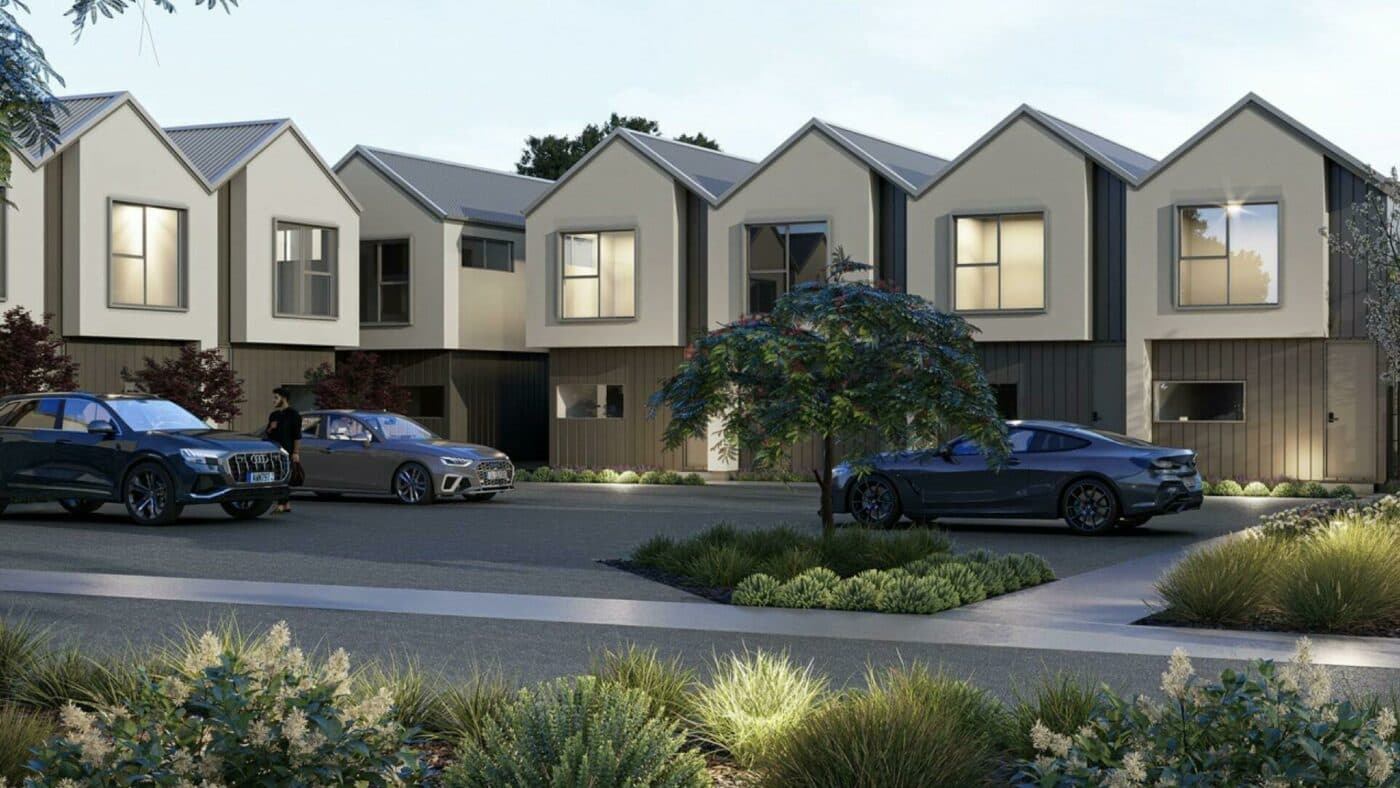
Some investors will read the above discussion on marginal yields and say, “I get that. But, I still need to know where my tenant’s guests are going to park?”
Similarly, as a property investor, you’ll eventually sell this property, and you might wonder “When someone buys this, where are their guests going to park?”
They’re going to park on the street. If it’s a real inconvenience, your tenants and their friends will meet at restaurants or somewhere else.
This is just the reality of medium-density living, where people value affordability over every other consideration. This will not impact your ability to tenant or sell your property.
According to a survey by Nadine Dodge, a doctoral student at Victoria University, the people who want to buy higher density properties (28% of the population) primarily care about:
1. Whether the property is affordable
2. Whether the property is near shops
3. Whether the property is easily commutable by bussing, walking or biking
The 4 factors they least cared about were:
1. Whether the property is near schools
2. Whether the property can be easily commuted to by car
3. Whether the property is a standalone home
4. And whether the property has car parking
So this group of people (over a quarter of the population) don’t see car parking as very important. And it’s important to recognise that these people may value different things in their homes than you do. That’s fine.
But, you’re not buying this property for yourself; you’re buying it as an investment.
To be fair, the above data is for higher density living and townhouses may be built in more medium residential areas. But the trend is still similar. Not everyone cares about having 4-car garaging.
After all that, it’s really going to come down to the deal in front of you.
If you ask us, car parks and garages are much of a muchness. If you can make the numbers work for a garage (and there is a good property available) go for it.
But don’t worry if you can’t, because there is always the option to get at least a car park.
Outside of that, here at Opes fewer of our investors buy properties without a car park unless it’s an inner-city apartment, or it’s a cracking deal.
Journalist and Property Educator, holds a Bachelor of Communication (Honours) from Massey University.
Laine Moger, a seasoned Journalist and Property Educator holds a Bachelor of Communications (Honours) from Massey University and a Diploma of Journalism from the London School of Journalism. She has been an integral part of the Opes team for four years, crafting content for our website, newsletter, and external columns, as well as contributing to Informed Investor and NZ Property Investor.
This article is for your general information. It’s not financial advice. See here for details about our Financial Advice Provider Disclosure. So Opes isn’t telling you what to do with your own money.
We’ve made every effort to make sure the information is accurate. But we occasionally get the odd fact wrong. Make sure you do your own research or talk to a financial adviser before making any investment decisions.
You might like to use us or another financial adviser